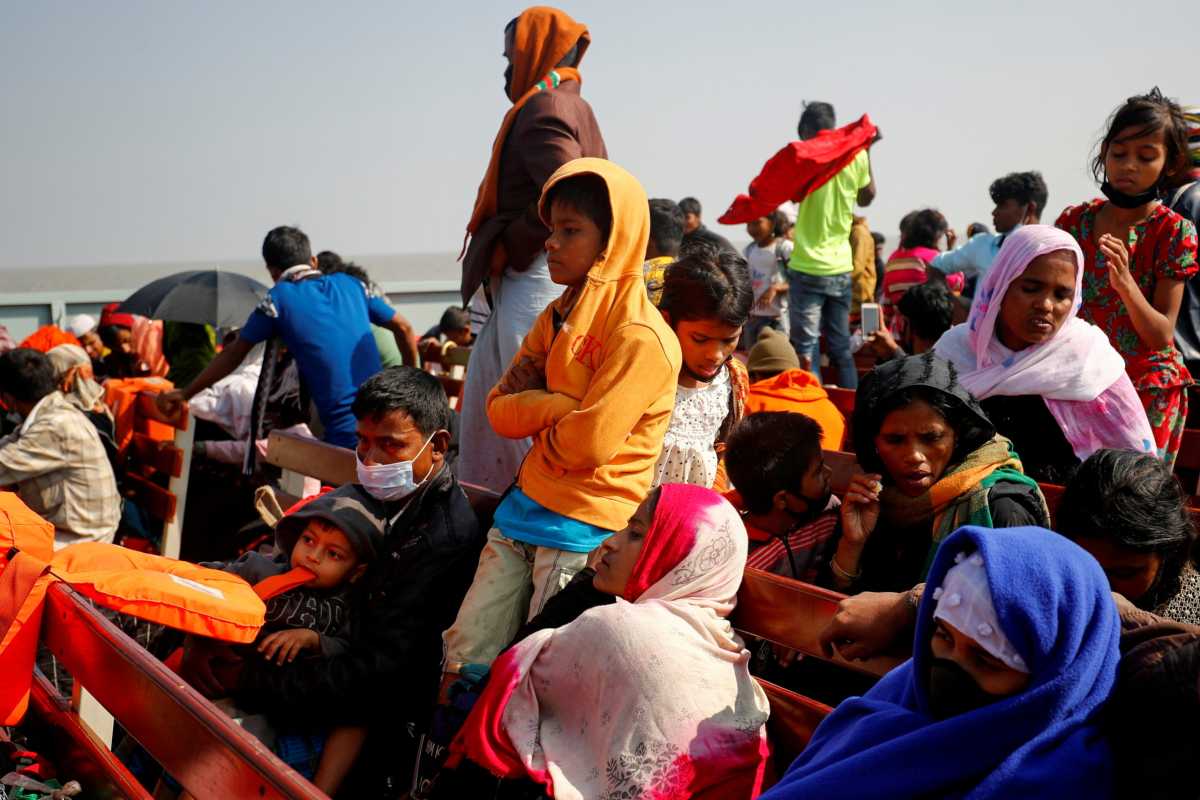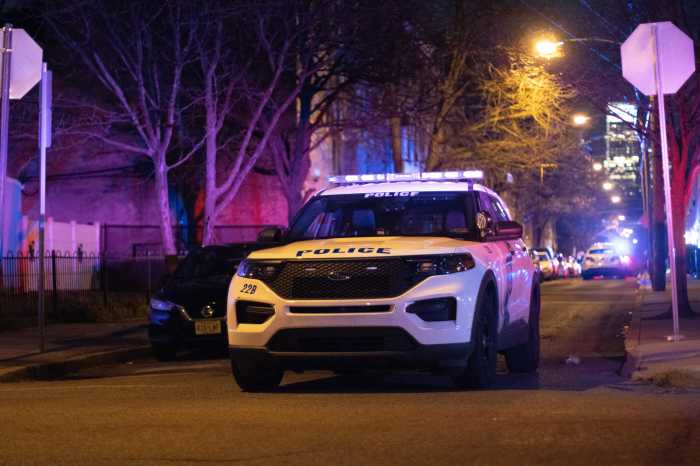By Humeyra Pamuk and Simon Lewis
The Biden administration has formally determined that violence committed against the Rohingya minority by Myanmar’s military amounts to genocide and crimes against humanity, U.S. officials told Reuters, a move that advocates say should bolster efforts to hold the junta that now runs Myanmar accountable.
Secretary of State Antony Blinken will announce the decision on Monday at the U.S. Holocaust Memorial Museum in Washington, U.S. officials said, which currently features an exhibit on the plight of the Rohingya. It comes nearly 14 months after he took office and pledged to conduct a new review of the violence.
Myanmar’s armed forces launched a military operation in 2017 that forced at least 730,000 of the mainly Muslim Rohingya from their homes and into neighboring Bangladesh, where they recounted killings, mass rape and arson. In 2021, Myanmar’s military seized power in a coup.
U.S. officials and an outside law firm gathered evidence in an effort to acknowledge quickly the seriousness of the atrocities, but then Secretary of State Mike Pompeo declined to make a determination.
Blinken ordered his own “legal and factual analysis,” the U.S. officials told Reuters on condition of anonymity. The analysis concluded the Myanmar army is committing genocide and Washington believes the formal determination will increase international pressure to hold the junta accountable.
“It’s going to make it harder for them to commit further abuses,” said one senior State Department official.
Officials in Myanmar’s embassy in Washington and a junta spokesperson did not immediately respond to emails requesting comment on Sunday.
Myanmar’s military has denied committing genocide against the Rohingya, who are denied citizenship in Myanmar, and said it was conducting an operation against terrorists in 2017.
A U.N. fact-finding mission concluded in 2018 that the military’s campaign included “genocidal acts,” but Washington referred at the time to the atrocities as “ethnic cleansing,” a term that has no legal definition under international criminal law.
“It’s really signaling to the world and especially to victims and survivors within the Rohingya community and more broadly that the United States recognizes the gravity of what’s happening,” a second senior State Department official said of Blinken’s announcement on Monday.
A genocide determination does not automatically unleash punitive U.S. action.
Since the Cold War, the State Department has formally used the term six times to describe massacres in Bosnia, Rwanda, Iraq and Darfur, the Islamic State’s attacks on Yazidis and other minorities, and most recently last year, over China’s treatment of Uyghurs and other Muslims. China denies the genocide claims.
Blinken will also announce $1 million of additional funding for the Independent Investigative Mechanism for Myanmar (IIMM), a United Nations body based in Geneva that is gathering evidence for potential future prosecutions.
“It’s going to enhance our position as we try to build international support to try to prevent further atrocities and hold those accountable,” the first U.S. official said.
Days after U.S. President Joe Biden took office, Myanmar generals led by Commander in Chief Min Aung Hlaing seized power on Feb. 1, 2021, after complaining of fraud in a November 2020 general election won by democracy champion Aung San Suu Kyi’s party. Election monitoring groups found no evidence of mass fraud.
The armed forces crushed an uprising against their coup, killing more than 1,600 people and detaining nearly 10,000, including civilian leaders such as Suu Kyi, according to the Assistance Association for Political Prisoners (AAPP), a campaign group, and setting off an insurgency.
Reuters was unable to independently verify the figures from the AAPP. The junta has said the group’s figures are exaggerated and that members of the security forces have also been killed in clashes with those opposing the coup. The junta has not provided its own figures.
In response to the coup, the United States and Western allies sanctioned the junta and its business interests, but have been unable to convince the generals to restore civilian rule after they received military and diplomatic support from Russia and China.
Blinken’s recognition of genocide and crimes against humanity refers mainly to events in 2017, before last year’s coup. The step comes after two State Department examinations — one initiated in 2018 and the other in 2020 — failed to produce a determination.
Some former U.S. officials told Reuters those were missed opportunities to send a firm message to the Myanmar generals who later seized power.
Activists believe a clear statement by the United States that genocide was committed could bolster efforts to hold the generals accountable, such as a case in the International Court of Justice where The Gambia has accused Myanmar of genocide, citing Myanmar’s atrocities against the Rohingya in Rakhine state.
Myanmar has rejected the charge of genocide and urged the court’s judges to drop the case. The junta says The Gambia is acting as a proxy for others and had no legal standing to file a case.
The International Criminal Court (ICC), a separate court at The Hague, is also investigating the deportation of Rohingya from Myanmar, and the IIMM in Geneva is gathering evidence that could be used in future trials.
Myanmar opposes the investigations and has refused to cooperate, asserting the ICC does not have jurisdiction and that its decision to launch a probe was swayed by “charged narratives of harrowing personal tragedies which have nothing to do with the legal arguments in question.”
John Sifton, Asia advocacy director at Human Rights Watch, said Myanmar’s military has faced “few real consequences for its atrocities, whether against Rohingya or other ethnic minority groups in Myanmar.”
As well as imposing more economic sanctions on the junta, the United States should press for a U.N. Security Council resolution that would refer all the military’s alleged crimes to the International Criminal Court, Sifton said. If Russia and China veto a resolution, as is likely, Washington should lead action in the U.N. General Assembly, he said.
“Condemnations of Myanmar should be coupled with concrete actions,” he said.
Before Blinken made the decision this month, officials debated whether blaming Myanmar’s government — rather than specifically its military — for the atrocities could complicate U.S. support for the country’s deposed democratic forces, according to a source familiar with the matter.
The State Department opted to pin the blame on the military, said the second senior department official.
“It’s not clear to what degree the civilian leadership had control over actions that were happening in Rakhine State and so that’s where the determination ends at this point,” said that official, who did not comment on the internal deliberation.
Suu Kyi, forced to share power with the generals, traveled to the International Court of Justice in 2019 to reject the genocide charges brought by The Gambia.
She said the country would itself prosecute any soldiers found to have committed abuses, but maintained the alleged violations did not rise to the level of genocide, for which the specific intent to destroy a group has to be proven.
When they seized power, the generals put Suu Kyi on trial in nearly a dozen cases that could see her sentenced to more than 100 years in prison. She remains in detention.
Reuters




























